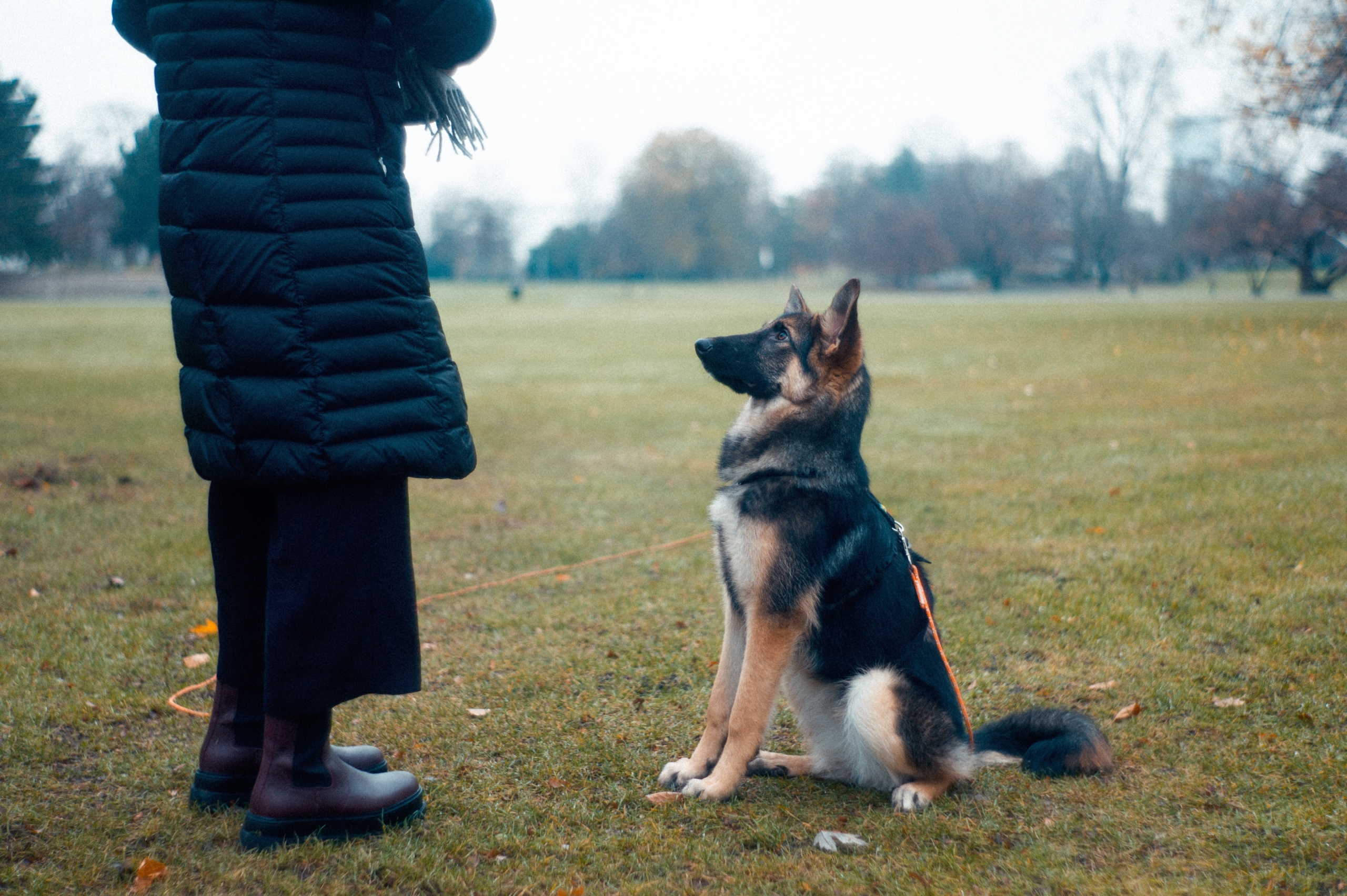There are differences between puppies (those under 5m) biting and mouthing and adult dogs biting or mouthing. Puppies explore the world with their mouths and will learn about their environment this way. It’s a completely normal behaviour which we channel into chewing on appropriate things like bones and chew toys rather than us!
Mouthing and biting are common when your puppy is tired, excited, frustrated or if they are guarding something they dont want you to have. The key to changing this is to understand when and why it happens.
‘Investigating’ mouthing
Young pups use their mouths to explore and will often just casually mouth things – cables from the lamp, your foot when you are sitting on the sofa, shoes on the floor etc. This tends to be just because its there rather than for an emotionally driven reason.
Just offer them a different item instead – switch it for a toy or a piece of food. Teaching them that a swap happens means they are happy to give it up.
Emotionally driven reasons for biting and mouthing
There are many circumstances that a dog can mouth or bite which are emotionally driven – resource guarding, being tired, overexcited and frustrated can lead to them mouthing your clothes, feet, lead or parts of you they can reach. In these circumstances, the dog is simply responding to a change in their brain chemistry – this is not under conscious control. This means its instinctive dog behaviour (like human’s in fight or flight behaviours) and so needs unpicking to teach what you want instead.
Step 1: unpick what just happened
Is the puppy tired? Overexcited? Wants something they can’t have? Trying to keep hold of a stolen sock?
Step 2: use active management
- If you know the puppy is tired, give them more opportunities to sleep
- If the puppy is overexcited, use something like a snuffle mat, food dispensing toy or a chew – or a sniffing game (searching for treats) to help them calm down.
- If the puppy is frustrated, look at what this was and consider what they can have as an alternative – frustration is all about an emotional response to not having what was anticipated. Having another thing instead helps to cushion that blow.
Step 3 – teach what you want instead
Being able to prompt the puppy with what you want them to do means that they will be less likely to get it ‘wrong’ and therefore the emotional reasons for mouthing will be lessened. You need to teach this as a completely separate behaviour, well away from the situation you need it in.
For example – your dog leaps at washing on the line and pulls it off, chewing it. Teach them to lay on a blanket in the garden – play with a toy instead – sniff for treats in the garden – sit by your side… There are almost endless possibilities. Teach the behaviour in a quiet location, and then slowly generalise it into being in the garden, with washing on the line which is flapping around in the breeze.
What about a puppy climbing on children or mouthing them?
Puppies usually find children playing really exciting and it can be difficult to manage both the puppy and the children, so this strategy helps. Firstly, invest in a puppy house line. This is a long line with doesn’t have a loop on the end – you could also use an old dog lead and cut the loop off.
- Put the house line on the puppy ahead of times/situations when the puppy tends to mouth and climb – do not leave them unsupervised when attached to the lead.
- Management is really important – if you cant be supervising the puppy and children together, then the puppy should be managed by being in another room or in a puppy pen.
- The puppy can be in the same room as the children when they are on the house line and being supervised
Teaching:
You need to be able to teach the puppy what they should do instead, so decide this ahead of time. Put the puppy on a long line and have them at a suitable distance from the children. If the puppy cant take treats, is fixated on the children (or lunging, barking etc) then remove them from the room and offer a calming game (like a snuffle mat or searching for treats). The fixation and barking behaviour shows they are overwhelmed and unable to learn at that moment.
- Work on marking/clicking anything your puppy does which is just watching the children and not getting involved. This could be watching, sitting, laying down, relaxing etc.
- MASTERING SKILLS: If the puppy starts to get overexcited and jumps on the children, encourage the puppy to come with you with your food magnet and use close lead skills to leave the children using the line to help. Over time you can work closer to the children and have a longer length to the lead
- MASTERING SKILLS: use a stuffed Kong or food toy, a snuffle mat etc for the puppy to help stay calm whilst being around the children
- If the mouthing/biting occurs when the children are playing with the puppy, use the same approach by having the puppy on a long line and – depending on the age of the children – teaching the children how to keep the game short (use a timer) and then do a calming sniffing/licking toy with the pup before starting the game again. Over time and with practice, the game being played can be longer.


